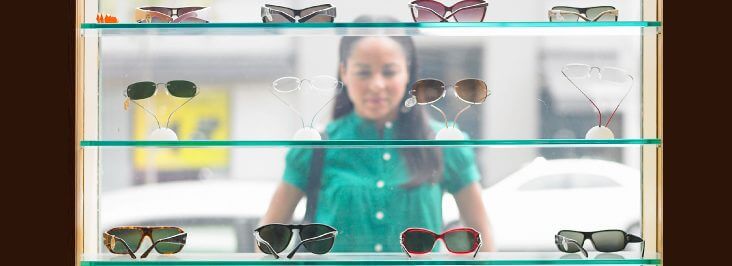
Email Us : [email protected]
Contact : +1 (403) 255-2826


I heard recently that 40 is the new 20! With so much exposure to what is current via TV, the internet and social media, it’s easier than ever to keep up with what’s trending and in style. One thing that is definitely never in style is squinting to read or see things up close! As we age, most people will find that their near vision gets worse! So, why is it when people hit the magic age of 40 that they start to have problems with reading? Read this week’s blog article to find out what causes reading problems as we age!

We are all too familiar with how our body changes with age. Just like the rest of our body, our eyes and vision also changes with age. This change in vision happen usually happens after the age of 40. This is when people will start to have difficulty with reading and seeing up close. This change is called Presbyopia. Being presbyopic, can make it hard to function throughout the day, especially if you are required to do a lot of reading or near tasks. As a result, most people turn to eyeglasses as a solution to their new vision problem. However, many people dread wearing eyeglasses, as there is often a perception that glasses makes a person look older. Well, we’re here to debunk this idea. There are many ways that eyeglasses can be your secret fountain of youth, and make you look younger!

It’s getting to be that time of year again, when you may find yourself with some unused optical benefits, or with left over money in a health spending account. Many insurance plans expire at the end of the year. Often, unused benefit dollars will not be carried forward. If you don’t use them, you lose them! This year, If you find yourself with extra money to put towards your eye care or multiple eyeglasses, now is a great time to do it! Many people are not aware that there are many advantages to owning multiple pairs of eyeglasses.

If you are over the age of 40, and reading small print is becoming more and more difficult, your optometrist may recommend you wear progressive lenses or a type of ‘no-line’ bifocal. There are many benefits to wearing glasses with a progressive lens. Cosmetically, there is no line, so no one else can tell you are wearing reading glasses. Furthermore, they are true multifocal lenses, providing a more natural and seamless progression from distance vision, to intermediate vision, to near vision. With a progressive lens, you can easily see to drive, look at your computer and also gaze down and look at nearby paperwork all with the same pair of glasses. However, there are hundreds of different progressive lens designs on the market today and it can be difficult as a consumer to know what makes each lens different and which would best suit your needs.

“My vision is fine, I don’t need glasses…” and “My glasses seem to not be working for me anymore!” These are some of the many remarks we as opticians hear from our patients who are getting closer to the age of 40; the age at which Presbyopia sinks in. Presbyopia is defined as the loss of elasticity of the lens of the aging eyes, occurring typically in middle age starting around the age of 40. Patients visiting our office often notice that it is gradually getting more difficult to read anything within arms reach. They also often complain of eye fatigue and light seeming dimmer. An eye exam is often used to confirm presbyopia.